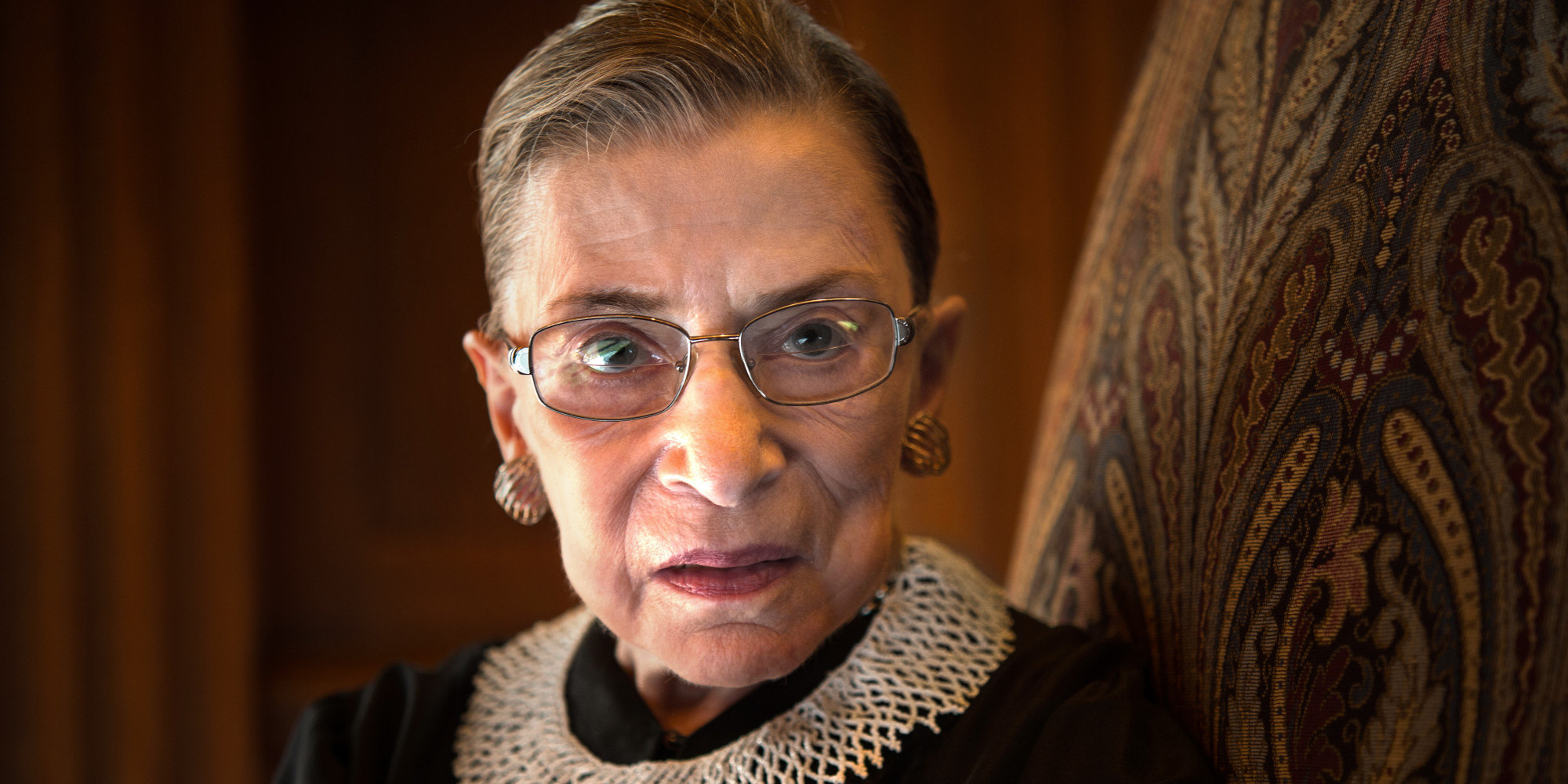
Nothindg Supreme Court Justice Ruth Bader Ginsburg has said in recent interviews about the presidential election should surprise anyone familiar with her biography and her career on the court. A lifelong left-of-center lawyer and feminist innovator who was appointed to the high court by President Bill Clinton in 1993, the 83-year-old Justice Ginsburg fits the profile of a Hillary Clinton supporter to a T. Obviously, she would rather have a Democrat appointing her next new colleague, and possibly her replacement.
Nor were any of Justice Ginsburg’s disparaging comments about the presumptive Republican nominee, Donald Trump, untrue, at least not as we read the evidence. When Justice Ginsburg, elaborating on her previous anti-Trump remarks to the New York Times, told CNN this week that Mr. Trump “has no consistency about him. He says whatever comes into his head at the moment. He really has an ego,” she certainly got no argument from us on the merits. (A brief dissent from the justice on one point, though: She rightly protested that Mr. Trump has not released his tax returns but incorrectly chided “the press” for being “very gentle with him on that.”)
However valid her comments may have been, though, and however in keeping with her known political bent, they were still much, much better left unsaid by a member of the Supreme Court. There’s a good reason the Code of Conduct for United States Judges flatly states that a “judge should not . . . publicly endorse or oppose a candidate for public office.” Politicization, real or perceived, undermines public faith in the impartiality of the courts. No doubt this restriction requires judges, and justices, to muzzle themselves and, to a certain extent, to pretend they either do or do not think various things that they obviously do or do not believe. As the saying goes, however, “hypocrisy is the compliment vice pays to virtue.”
As journalists, we generally favor more openness and disclosure from public figures rather than less. Yet Justice Ginsburg’s off-the-cuff remarks about the campaign fall into that limited category of candor that we can’t admire, because it’s inconsistent with her function in our democratic system. Only 16 years ago, a key issue regarding the outcome of the 2000 presidential election wound up at the Supreme Court, whose decision in favor of Republican nominee George W. Bush, backed by five conservative Republican appointees, was regarded as controversial by many and nakedly partisan by some. Think of how that situation would have played out if one or more of the justices had previously mused about leaving for New Zealand in the event of a victory for either Mr. Bush or his opponent, Democrat Al Gore.
When the story of Justice Ginsburg’s career is written, there will be many highlights — her pioneering work as a lawyer advocating women’s rights; her many trenchant opinions on the high court in defense of American society’s underdogs. Her performance this week, alas, confirms her fallibility.



Expositores: Oscar Vidarte (PUCP) Fernando González Vigil (Universidad del Pacífico) Inscripciones aquí. Leer más
Una retrospectiva para entender los próximos cuatro años. Leer más
En la conferencia se hará una presentación de los temas más relevantes del proceso de negociación se llevó a cabo desde el 2012, así como del acuerdo de paz firmado entre el Gobierno colombiano y la guerrilla de las FARC a finales del 2016. Se analizarán los desafíos y las... Leer más
El Observatorio de las Relaciones Peruano-Norteamericanas (ORPN) de la Universidad del Pacífico es un programa encargado de analizar y difundir información relevante sobre la situación política, económica y social de Estados Unidos y analizar, desde una perspectiva multidisciplinaria, su efecto en las relaciones bilaterales con el Perú.
© 2026 Universidad del Pacífico - Departamento Académico de Humanidades. Todos los derechos reservados.

